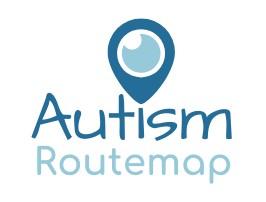What all employers need to know about remote working & neurodiversity

2020 was a year we will all remember! A year when we had no choice but to pivot. Although some of my work was already done online, the thought of operating this on a full-time basis seemed out of the question. And then there was lockdown! Zoom meetings became my new norm overnight. I, along with my colleagues, found that it was possible after all. Yes, there’ve been some hiccups but I’ve also seen huge benefits! But does remote working suit everyone? What about neurodiverse and autistic people? With the new national lockdown in place in the UK, it is an issue we can't ignore.
As is often the case, there's been a combination of ups and downs. We’ve seen a fair amount in the media concerning the emotional consequences of restricted social contact. Poor access to people and other activities that feed our souls can lead some of us to a very dark place.
On the other hand, a number of people I work with have reported lower stress levels during this period. The slower pace, reduced social contact and autonomy over one’s own working environment has been a good fit for some. Many have enjoyed not having to use public transport or battle traffic on a daily basis. Others, however, have found remote working extremely difficult. And it has nothing to do with social isolation …
So, what are these “other” barriers and what can we do to address them?
The sensory issues you can’t afford to ignore
It is well known that many neurodiverse and autistic people have sensory processing issues. This shows up in heightened sensitivity to sensory input, such as, sudden noises, bright lights or particular smells, to name a few. Others need additional sensory feedback to feel regulated. As a result, they seek out sensory information and may, for example, stroke soft textures, enjoy firm touch / pressure, smell or even lick things.
How, you may ask, is this relevant to remote working? After all, many of the sensory issues can be more easily managed when in one’s own home. There is no doubt that being able to meet on platforms such as, Zoom and Microsoft Teams, has enabled us to continue working. But these platforms pose sensory challenges for some – especially those with sensory sensitivities.
Noises that are easily filtered out by neurotypical people, may be hugely distracting for someone with sensory processing challenges. The lorry that pulls up outside your home, a dog barking in the background, a child squealing with joy, the hum of technology – all easily ignored - unless you can’t.
One lady told me that people's voices sound much sharper through screens.
Imagine how you would feel after listening to an unpleasant noise, like someone scraping their nails on a chalk board, for a few hours at a time. Or, how you would cope if your listening environment was the equivalent of a busy, noisy restaurant? No doubt, you would feel tired, overwhelmed and a tad irritated.
How social cues are compromised on screens
Then, there are the social dynamics of interacting on a flat screen. This took a little getting used to – even for me - as a neurotypical person. On screen, many of our usual social cues are missing. In face to face conditions, we turn our bodies, heads and eyes towards the person we are talking to. We also use hand gestures for emphasis, to describe things or to reference another person in the room. That information doesn’t exist on screens.
Without these signals, the conversation is much harder to follow – especially in groups. How do you know when it is your turn to talk? How do you know when you are being spoken to? It’s not surprising that people often talk over each other in these conditions. This of course, adds to the sensory load of the neurodiverse / autistic person in the group.
All in all, processing demands are increased by the additional sensory information and the absence of visual cues we normally rely on. Neurotypical people can often compensate but it may be more difficult for neurodiverse / autistic people who are already dealing with challenges in this area. One might call it a perfect storm!
The result is an employee who feels extremely overwhelmed, unable to follow the conversation and begins to shut down rather than contribute.
3 quick and effective responses
UK law (Equality Act 2010) says that we have a duty to make reasonable adjustments where someone is at a substantial disadvantage because of their disability. One person I work with went from being promised a substantial pay rise – before lockdown – to being asked to step down from her managerial responsibilities 6 months later. That is substantial in anyone’s book. There is nothing minor about being unable to do your job!
I have three simple suggestions which are easily implemented and delivered at extremely low cost. In fact, they cost nothing but common courtesy and a willingness to be considerate to your fellow colleagues / employees.
- Ask people to switch off their microphones unless they are speaking. This eliminates the problem of unnecessary background noise.
-
Ensure that each meeting has a facilitator who manages the discussion. This would include letting people know when it is their turn to talk, dealing with interruptions and stating the meeting agenda so that discussion topics are crystal clear. Minutes containing decisions will also help to ensure clarity.
- Length of calls. Calls should not be longer than is necessary. Where colleagues are collaborating on projects and it is necessary to have longer calls, ensure that staff members take breaks or have more frequent rather than longer meetings.
This is in recognition of the increased processing demands experienced by the neurodiverse / autistic person. They will probably be able to manage for a time but at a certain point their capacity is likely to run out.
So, in accordance with the law and a spirit of humanity, please consider making these changes to ensure that all your colleagues and employees are working to an optimum level. After all, if one member of the team is not functioning, there is a knock-on effect. As Mark Grey put it, “A team is only as strong as it’s weakest link.”
Here's to a future of respecting everyone!

Linda Philips
Msc. Human Communication
Autism Routemap supports autistic and neurodiverse people with coaching and training to improve communication, interaction, and emotional regulation skills. Interested in knowing how we can help?
Disclaimer
This blog post is for educational purposes and should not be taken as medical or therapeutic advice. If you need medical or therapeutic support, please consult your medical practitioner or therapist.
Linda empowers and equips people to communicate effectively, find freedom in their relationships and experience greater emotional well-being.
Whenever you’re ready, here are three ways I can help you:
- Grab a copy of: “Your guide to life after an adult autism diagnosis. Taking the next step into an empowered future!”
Use this guide to clarify how autism impacts you personally so you can:
- understand and clearly communicate your needs
- explain the diagnosis from your perspective
- take action to accommodate your needs and identify skills you want to develop
Click HERE to get your free copy
- Work with me directly
If you’re interested in working with me privately to fast track your progress in developing an emotionally healthy life and harmonious relationships, then I invite you to schedule a FREE call to discuss the options that are available.
Click HERE to book your call.
- Join our private Facebook group.
This is a place to connect with like-minded people to share challenges and solutions … and cheer each other on in your journey.
Click HERE to join
.

